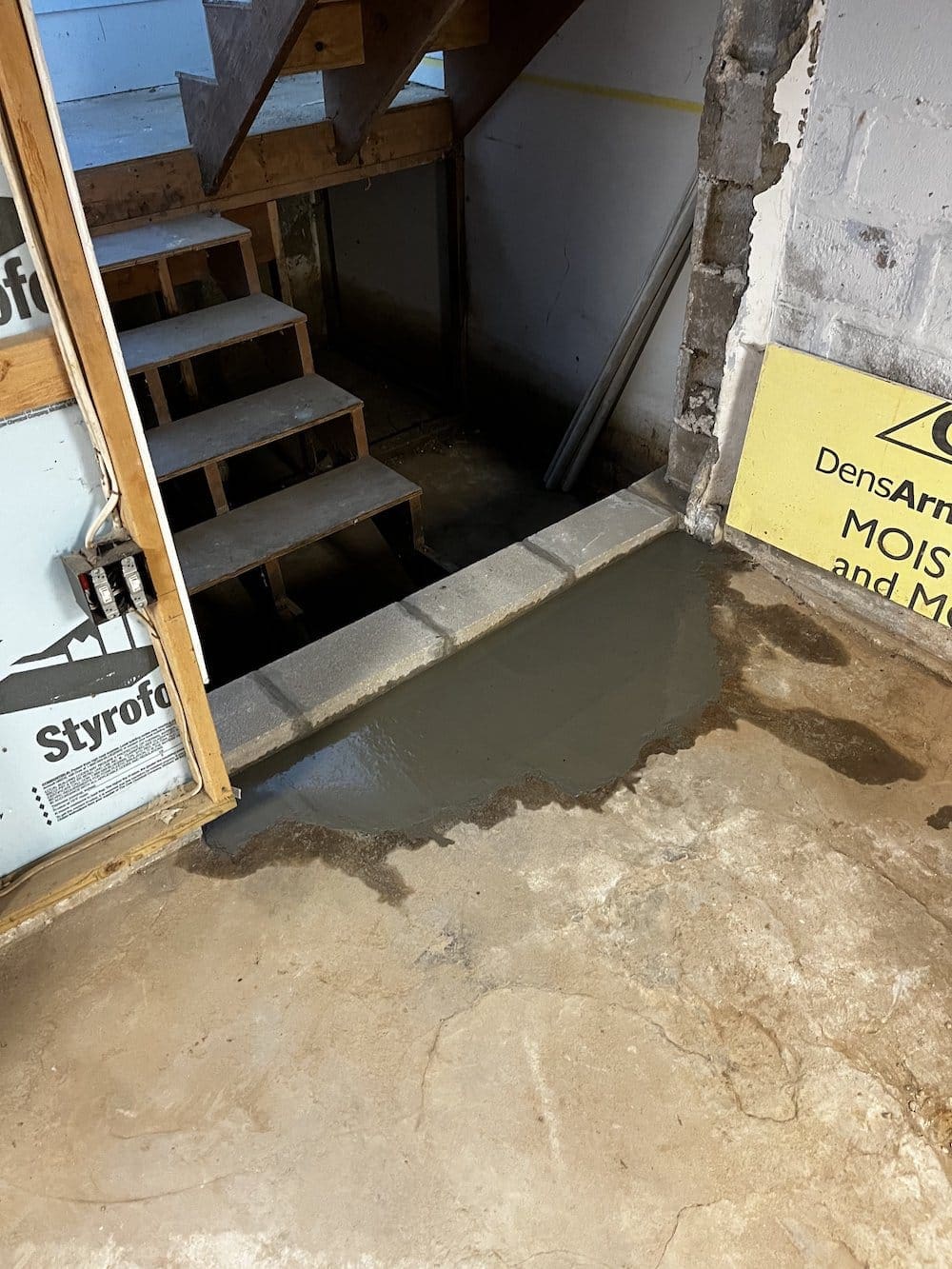Leaking basements can be a significant concern when you’re going to go through a home inspection. However, waterproofing experts, like our team of professionals at Level Up Foundation Repair, advise you not to let signs of basement moisture deter you from making a purchase! Instead, focus on taking the necessary steps to resolve the issue before it spreads to other areas of the home and prevents similar problems from occurring in the future. The most important thing, regardless of the water source, is to act quickly.
If you’re wondering whether a basement has leakage, there are several ways you can identify potential issues.
How To Identify If Your Basement Is leaking? Let’s Find Out!
Be mindful of the slope of your landscape, as it can indicate potential leakage issues. The land’s incline determines whether water will flow away from or toward your house when it rains. If the slope is poor, water may pool near your foundation, increasing the risk of leaks.
Take a close look at your gutter system! The primary purpose of gutters is to channel water away from your home. When eavestroughs and downspouts are in good working order, they can reduce the chances of siding damage, basement flooding, and landscape erosion. If your gutters and downspouts aren’t effectively draining water, you might find water pooling around your foundation, which can seep into the basement.
Be alert for signs of mold and mildew growth in your basement, which often come with a musty odor. This is one of the most prominent signs searched for in a home inspection! If you detect an unpleasant smell, check for visible mold and identify the source of any leaks. Pay special attention to your foundation, any cracks, sweating pipes, and around windows. Enhancing the drainage around your house can help prevent future issues. Remember, high humidity can also lead to dampness, which may be managed with a dehumidifier.
If you notice cracks in your walls, this could indicate a leak in the basement! Walls and foundations may crack when the soil underneath contains a high clay content and expands due to excess moisture. The increased pressure from this swelling can cause your walls to shift and crack.
When you consider upgrading your waterproofing system, using waterproof paint or membranes might seem like a quick solution, but it’s just a temporary fix. While these measures can help prevent water from entering your space, they also allow hydrostatic pressure to build up against the foundation. For a more lasting solution, you should look into replacing the interior drainage system and installing a sump pump. This will help catch any groundwater before it has a chance to reach your basement floor.
How Can I Find The Leak in My Basement?
You can use several methods to identify a leaky basement yourself before a home inspection. Here are some steps you can follow to search for leaks:
First, pay attention to your interior drainage system. If you have an existing interior drainage system, it indicates that you’ve dealt with excess moisture issues in the past. This also alerts you to the possibility of leaks in your basement.
Be cautious with waterproofing paint; it may only serve as a temporary solution. While you might consider applying a waterproofing barrier, keep in mind that this is often a short-term fix. Many homeowners cover up stains and gaps with paint, but to accurately assess waterproofing effectiveness, you should check for any previous problems and see how long those solutions have lasted.
Using a moisture meter can also be beneficial. This tool allows you to measure moisture levels throughout your property. If you find high moisture levels in your basement, it could indicate hidden water seepage that requires your attention.
Lastly, carefully review what your waterproofing warranty and insurance cover. Understand your homeowners’ insurance limits, whether basement water damage is included in your policy, and the specific conditions under which your insurer will pay. Most insurance policies typically cover only sudden or accidental damage, so be sure to check the details.
After experiencing damage from a natural event, such as a cyclone that raises the water table, you might find that payment is not permitted. Having a waterproofing warranty is essential because it showcases the installers’ qualifications and their readiness to handle potential issues. Ideally, you should aim for a warranty that offers a lifetime guarantee.
Be aware that the water table rises when the soil becomes saturated with moisture and struggles to drain effectively. This can occur in low-lying areas, either permanently or after an extended rainy season. As more surface water seeps into the ground, it can eventually make its way into your basement through the floor.
Contact Level Up Foundation Repair For Help
Many property owners overlook basement leakage issues because they can be costly to address while preparing for a home inspection. However, it’s important to understand that every basement has its own unique characteristics, which means a personalized strategy is necessary for tackling moisture problems effectively. The best step you can take is to consult with and collaborate with experienced, qualified waterproofing professionals. Don’t hesitate to give us at Level Up Foundation Repair a call today at (816) 230-0101.

